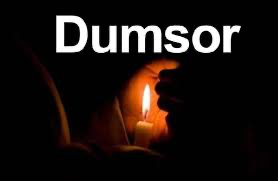
Adnan Adams Mohammed
The Institute for Energy Securities says Ghana faces renewed threat of power crisis as 560MW Sunon Asogli Power Plant shuts down amid debt dispute.
“In case you are experiencing a low-key dumsor, be prepared to see an extended version of the same, due to the government’s reluctance to act decisively on the root cause,” the Institute said in a statement.
It noted that a new wave of potential extended intermittent power outages reminiscent of the infamous “dumsor” looms over the country following the recent shutdown of the 560 megawatts (MW) Sunon Asogli Power Plant which reliably supplies about 12-15% of the nation’s electricity.
The absence of the plant from the national grid is already evident, the Institute said.
Sunon Asogli, one of Ghana’s largest power producers, suspended operations two weeks ago, citing prolonged delays in payment of US$259 million, for electricity supplied.
According to the owners of the plant, a significant capital injection is required to service its operational debts and resume normal production.
Reports indicate that despite calls from the Ghana Grid Company Limited (GRIDCo) to restore operations and alleviate the growing pressure on the national grid, Sunon Asogli has remained steadfast, pointing at its lack of operational fund.
Subsequently, Benjamin Nsiah, Executive Director of the Center for Environmental Management and Sustainable Energy (CEMSE), in a recent interview also pointed to severe financial constraints in Ghana’s energy sector as the cause of the ongoing intermittent power outages, commonly referred to as “Dumsor.”
According to Mr. Nsiah, the government owes Independent Power Producers (IPPs) and State-Owned Enterprises (SOEs) a substantial $2 billion, impacting the cash flow needed for sustained energy production.
He revealed that despite generating power for distribution by the Electricity Company of Ghana (ECG) and the Northern Distribution Company (NEDCo), payments have not been made, putting a strain on energy suppliers.
Mr. Nsiah explained that many IPPs are now hesitant to continue operations due to inconsistent payments and the government’s lack of transparency regarding revenue sources.
He warned that Ghana could face even more severe power outages in November if the situation persists.
Mr. Nsiah emphasized that the nation’s energy capacity has diminished significantly, with a reported loss of 1,000 megawatts, particularly affecting peak-hour supply.
He highlighted that the IPPs and SOEs lack the necessary funds to procure fuel and natural gas to power generators, further intensifying the power crisis.
Additionally, Mr. Nsiah criticized ECG’s revenue collection, citing that while ECG received $15 billion worth of power supply, only $9 billion was collected as revenue.
He blamed the government for failing to restructure ECG to address these inefficiencies.
Mr. Nsiah concluded by expressing that IPPs have lost confidence in the government and are reluctant to sign any new Memoranda of Understanding regarding payment agreements, posing an even greater threat to the stability of Ghana’s energy supply.


